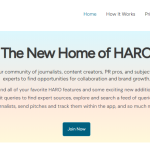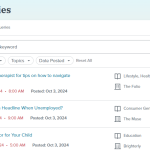Nowadays in this fast-paced digital world, SEs are smarter than ever. Gone are the days when you could rely on quick fixes or shady tactics to climb the search rankings. Now, success hinges on ethical link-building strategies that align with the latest trends in SEO. As algorithms evolve, ethical practices aren’t just preferred—they’re essential for long-term results.
As we head to 2025, the landscape of link building in Search Engine Optimization (SEO) is poised for a major shift. The focus will increasingly be on quality and relevance, rather than sheer volume. Sophisticated techniques and ethical practices will become integral to broader digital marketing strategies, enhancing both effectiveness and trustworthiness.
Will AI, user experience (UX), and other emerging factors change the game entirely? Let’s dive in to explore where ethical link building is heading and how it can shape your SEO success.
The Role of AI in SEO
Artificial intelligence (AI) is already reshaping how search engines rank content. It’s evolving rapidly, and with each update, search algorithms become more sophisticated. They’re not just looking for keywords or simple backlink counts anymore. They’re assessing intent, relevance, and quality. This is why ethical link building has become more crucial than ever.
AI-Powered Search Algorithms
Search engines like Google use AI-driven algorithms such as RankBrain and BERT to assess web content. RankBrain focuses on understanding search queries and user intent, while BERT dives deeper into natural language understanding. As a result, Google can now detect manipulative or low-quality link-building techniques much faster than before.
AI isn’t just about detecting black-hat tactics. It also rewards websites that practice white-hat SEO. For example, guest blogging, backlink outreach, and content partnerships are all techniques that AI will recognize as authentic and beneficial to users. If your strategy revolves around providing real value, AI will help you succeed.
Think of AI as the ultimate gatekeeper. If you’re trying to trick it with spammy links or irrelevant content, it’ll catch on eventually. But, if you’re focused on creating meaningful connections and delivering quality content, AI will push you higher up the rankings.
Natural Language Processing (NLP) and Links
Natural Language Processing (NLP) allows search engines to grasp the context of backlinks more accurately than ever. Instead of merely counting the number of links pointing to your site, NLP considers whether the link is contextually appropriate and valuable.
Imagine a blog about vegan recipes linking to your content about eco-friendly kitchen appliances. That makes sense, right? Now imagine that same site linking to an article about motorcycle maintenance. It wouldn’t seem relevant. That’s the kind of nuance NLP can detect, ensuring that irrelevant or manipulative links are penalized while high-quality, context-rich ones are rewarded.
Incorporating natural backlinks into your strategy is no longer a choice—it’s a necessity. AI and NLP will play an even larger role as algorithms become more sophisticated. So, as you build links, focus on creating relationships that are contextually relevant, valuable, and aligned with user needs.
AI and Content Quality Assessment
AI doesn’t stop at assessing the relevance of your backlinks—it’s also getting better at determining the quality of your content. Low-quality, thin content stuffed with keywords won’t cut it anymore. To earn backlinks, your content needs to be informative, engaging, and genuinely useful.
When your content resonates with readers, it’s more likely to be shared and linked to by other reputable sites. High-quality content naturally leads to more backlinks, which boosts your SEO and rankings. That’s why creating valuable content should always be a core part of your ethical link-building strategy.
The Rise of User Experience (UX) as a Ranking Factor
User experience (UX) is no longer just about how your website looks; it’s a critical ranking factor that impacts SEO in ways you might not realize. Google’s emphasis on UX is growing, and it’s essential to understand how this shift influences link-building strategies.
Google’s shift toward UX
With updates like Core Web Vitals, Google has made it clear that user experience is a top priority. Core Web Vitals measures factors such as page load speed, interactivity, and visual stability—all of which are critical to how users experience your website. A slow, clunky website not only frustrates visitors but also negatively impacts your rankings.
The better your UX, the more likely users are to stay on your site, share your content, and link back to it. It’s no longer enough to have a good-looking site—you need to ensure it provides a seamless, enjoyable experience for users.
The Correlation Between UX and Content Quality
Content quality and user experience go hand-in-hand. Even the best content won’t matter if your site is slow, difficult to navigate, or visually overwhelming. On the flip side, a well-designed, fast-loading site will encourage users to stay longer, explore more, and, ultimately, share your content.
High-quality content that’s paired with great UX naturally attracts backlinks. People want to link to informative, entertaining internet sites. Whether it’s through guest blogs, resource pages, or social media, positive UX boosts your link-building potential.
How UX Influences Link Acquisition
A better user experience increases your site’s shareability. When users have a positive experience on your site, they’re more likely to share it with others—whether through social media, forums, or blogs. These organic shares can lead to valuable backlinks.
For instance, if you run an e-commerce site and you invest in a mobile-friendly design, fast-loading product pages, and a simple checkout process, users are more likely to recommend your site. This type of organic promotion not only drives traffic, but it also boosts your SEO by generating authentic backlinks from real users who find your site valuable.
The sustainability of white hat SEO
In the ever-changing landscape of SEO, one thing remains constant: white hat link building is the only sustainable method for long-term success. While black hat techniques might give you a temporary boost, they come with serious risks and are almost guaranteed to fail in the long run.
Why White Hat Link Building Endures
White hat SEO techniques, like guest posting, outreach, and content partnerships, focus on building genuine relationships and providing real value. These methods might take longer to show results, but they’re far more sustainable in the long run. When you play by the rules, you build credibility with both users and search engines.
Think of it this way: white hat SEO is like planting a tree. It takes time, effort, and care, but once it’s grown, it’ll provide shade and fruit for years to come. In contrast, black hat SEO is like building a house of cards—it might look impressive at first, but one gust of wind (or an algorithm update) can bring the whole thing crashing down.
Avoiding the Risks of Black Hat SEO
Black hat SEO techniques—such as buying links, using private blog networks (PBNs), or creating spammy content—might seem tempting because they promise quick results. However, these tactics are risky and can lead to severe penalties from search engines, including being removed from search results altogether.
Google’s algorithms are constantly evolving to detect and punish manipulative behavior. When you rely on black hat techniques, you’re gambling with your website’s future. The short-term gains aren’t worth the long-term damage to your reputation, rankings, and traffic.
Building authority and trust
White hat link-building strategies focus on creating high-quality content and earning backlinks from reputable sites. This approach helps you build authority and trust within your industry. Search engines reward sites that consistently deliver value to users, and over time, this trust translates into higher rankings and more organic traffic.
As search algorithms continue to evolve, trust and authority will become even more critical. Ethical link-building strategies are the best way to establish yourself as a reliable and credible source in your field.
Future Trends in Ethical Link-Building Strategies
As we look to the future, it’s clear that ethical link-building strategies will continue to evolve. While the core principles of white hat SEO will remain, new trends and techniques are emerging that will shape the way we approach link building in the coming years.
Interactive Content as a Link Magnet
Interactive content, such as quizzes, polls, and calculators, is becoming increasingly popular for attracting organic backlinks. This type of content engages users in a way that static blog posts or articles can’t. When users interact with your content, they’re more likely to share it and link to it, which helps improve your SEO.
For example, a financial services company might create a mortgage calculator that helps users determine how much they can afford. This tool not only provides value to users but also encourages other websites and blogs to link to it as a helpful resource.
Interactive content offers a unique opportunity to engage users while simultaneously boosting your link-building efforts. As more businesses adopt this strategy, it’s likely to become a standard practice in ethical SEO.
Collaborative Partnerships for Link Building
Collaboration is key to the future of ethical link building. By partnering with influencers, industry leaders, or other businesses in your niche, you can create mutually beneficial content that attracts high-quality backlinks.
For instance, you might collaborate on a co-authored blog post, a joint webinar, or a podcast. These partnerships not only help you reach a wider audience but also improve your credibility and increase your chances of earning backlinks from authoritative sites.
In the future, we can expect more businesses to prioritize collaboration as a way to build valuable connections and generate organic backlinks.
Content Personalization and Micro-Niches
As AI continues to improve, content personalization will become even more important. Targeting micro-niches allows you to create highly personalized content that resonates with specific audiences. When your content speaks directly to a niche group’s interests and needs, it’s more likely to be shared and linked to by those within the community.
For example, a company that creates eco-friendly kitchen appliances could target vegan food bloggers, sustainability advocates, and zero-waste communities. By tailoring content to these specific audiences, the company increases its chances of earning high-quality backlinks from reputable sites within those niches.
Personalization and micro-niches represent the future of content creation and link building. As search engines become more sophisticated, businesses will need to focus on creating hyper-targeted content that resonates with specific audiences and attracts relevant backlinks.
The future of ethical link-building strategies is bright—and it’s all about quality, relevance, and value. As search engines become more sophisticated, they’ll continue to prioritize websites that offer genuine value to users. Whether through AI, UX improvements, or white hat SEO techniques, the key to success lies in building meaningful, authentic connections with other reputable sites.
By focusing on ethical practices, such as creating high-quality content, fostering collaborations, and engaging in contextual link-building strategies, businesses can ensure their long-term SEO success. The days of quick wins through black hat tactics are over. The future belongs to those who prioritize sustainable, user-focused strategies that build trust and authority within their industry.
 logo
logo

